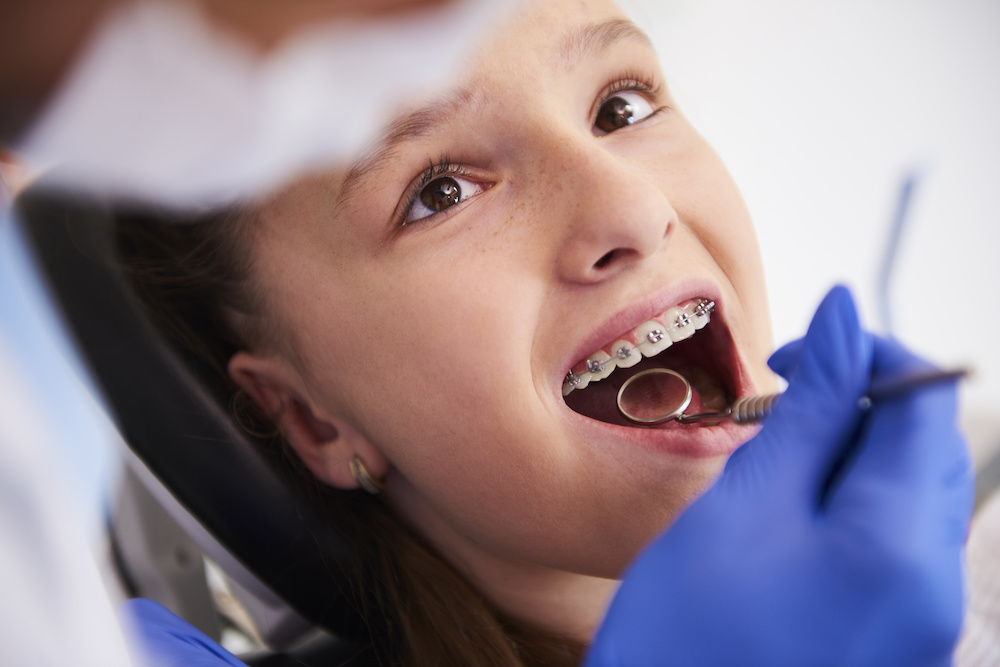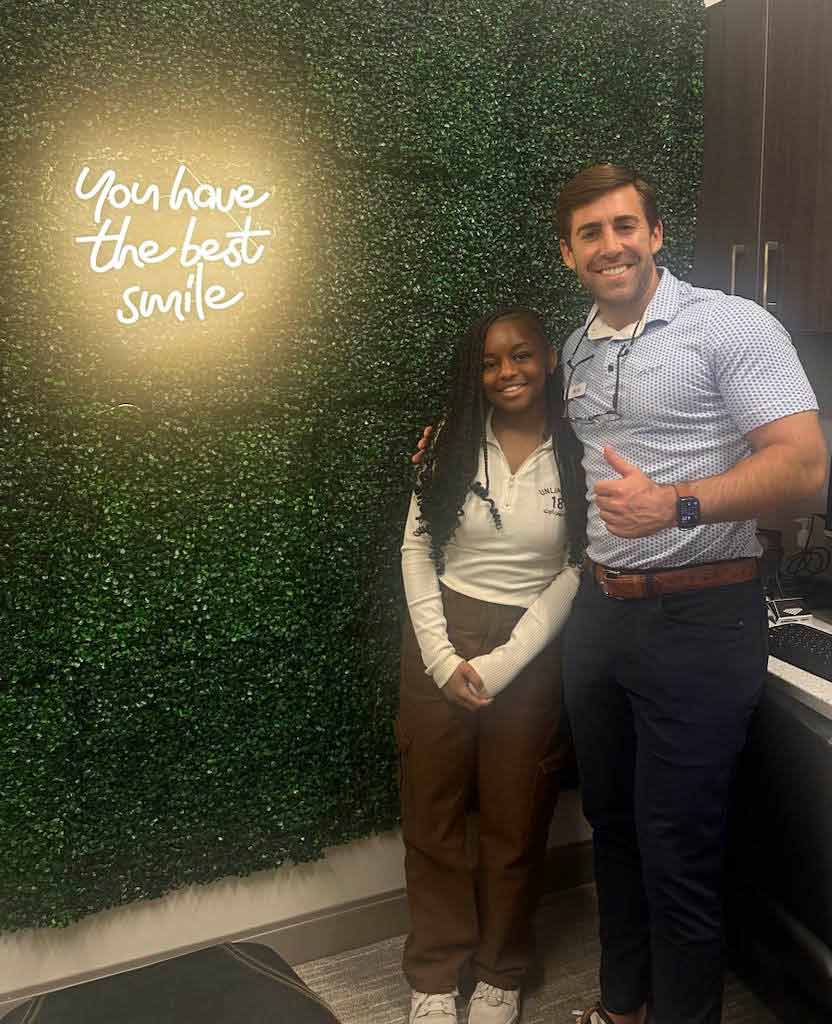Human teeth are very strong and can effectively grind down food for digestion, but they are far from invincible. In fact, you don’t even have to bite anything at all for them to succumb to serious damage. Many people experience varying levels of cracked teeth, which can become visible to others. However, you can help avoid this problem by getting orthodontic treatment with braces or Invisalign.
Types of Cracked Teeth
Tooth cracks are actually fairly common, and not all kinds of cracked teeth will need treatment. One type of tooth crack is called a minor crack or craze line. These are simply small breaks in the enamel that occur for various reasons, whether due to biting tough food or low, constant pressure over time. These cracks are often fairly benign and won’t require treatment unless they reach the dentin, which is the layer under the enamel. A vertical crack is more severe and often starts at the crown and heads towards the root, although it can sometimes start from the root. A vertical crack should be addressed right away so the crack doesn’t progress and result in the need for extraction.
A deep fracture will be quite noticeable, often resulting in sharp pain. It’s also typically pretty easy to spot since the tooth will look separated. If a tooth gets to this point, it will most likely need to be extracted, although sometimes a crown can be used to cover the gap.
How Braces Prevent Tooth Cracks
One of the most common causes of tooth cracks, both minor and severe, is crookedness. When teeth are crooked, they won’t be able to bite down smoothly. Even if people get used to having crooked teeth and don’t give their bite a second thought, they can still cause problems. Due to uneven pressure, some teeth have more contact with each other than other teeth. Over time, this disproportionate pressure wears down teeth and can cause cracking.
This happens while eating and throughout the day, but it can be worsened by bruxism, or teeth grinding, at night. This isn’t good for teeth, even if they are straight. And when there are teeth that are crooked, they will experience more pressure and be more prone to cracking.
Misaligned bites, such as overbites and underbites, also increase the risk of cracked teeth. For instance, it’s hard not to put too much pressure on the front teeth when an underbite causes them to be in constant contact.
Getting orthodontic treatment can help fix these issues by getting rid of crookedness and fixing misaligned bites. While this won’t eliminate the risk of cracked teeth, it evens out the pressure each tooth is under and puts you at a lower risk of cracking your teeth due to wear. You’ll also realize just how comfortable a smooth bite can be once you’re done with treatment.
If you want to learn more about how orthodontic treatment can prevent problems with your teeth, schedule your free consultation at Charleston Orthodontic Specialists today!



